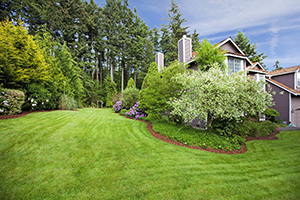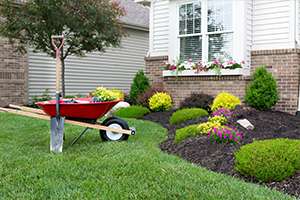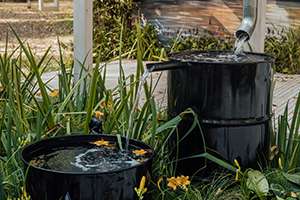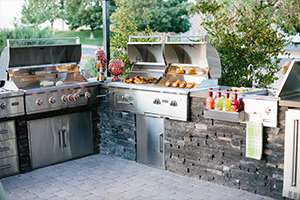
Landscape lighting is an effective way to increase safety and security on your property. The best outdoor lighting will achieve two main objectives: enhanced safety and security. Accent and hardscape lighting fixtures can light up steps and entry ways as well as areas of transition on walking surfaces. With optimal landscape lighting for the home, you can have peace of mind while adding beauty to your property’s exterior.
Top 3 Home Security Lighting Options
You have several different options when it comes to security lighting for a home. The right choice for your property will depend on several factors, including existing lighting in the neighborhood, home design, and security needs.
Here are some of the best options for illuminating your home for safety purposes:
- Photocells: By using a photocell in conjunction with your lighting transformer, your landscape lighting can come on at dusk and turn off at dawn.
- Motion-Activated Lights: Lighting comes on when something or someone triggers a built-in motion sensor.
- Combination Lights: Lower intensity lighting shines continually during the night, and a motion sensor provides brighter light when someone or something is near your property.
Find the Best Home Security Lighting to Meet Your Needs
At W.P. Law, Inc. you will find outdoor lighting experts who can help you identify your needs and budget to achieve your home’s security lighting goals. We take the time to assess your property and offer professional suggestions to boost home security and property aesthetics. Connect with the friendly team at W.P. Law, Inc. to achieve optimized home security lighting.

















